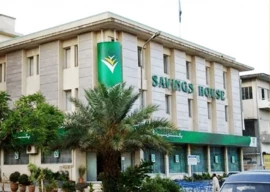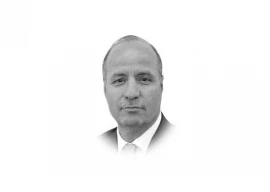
Such cities need to be financially prosperous and mostly self-sufficient in terms of generating the required finances for managing the city. In these cities, growth and development does not take place at the cost of the environment and dividends of growth are equally distributed, they are inclusive and their communities bond.

Karachi, unfortunately, fits into none of the above stated distinguishing characteristics of a smart and well run city. The city government is pretty much non-functional, planning is bereft of any input or solicitation of residing citizens and there is a complete absence of enabling legislative and administrative mechanisms to facilitate viable public-private partnership models. Financially the city that provides nearly 70 per cent of the national revenue is dependent on federal and provincial governments to keep it from collapsing completely.
There is a high level of financial disparity and differing quality of living conditions across communities and localities. It is a violent and divided city with an alarmingly increasing footprint of gated communities.
An example to follow
However, Karachi is not the only city in the world faced with such a dysfunctional political, financial and administrative framework. In such cities, what is needed to bring about or at least catalyse positive change is a strong, coordinated and organised citizen mobilisation to make their city a better place through their own efforts and apply enough pressure on the city government to get its house in order.
One such example of a citizen’s initiative for urban reform is taking place in the Brazil’s Rio Di Janerio. This initiative is the Meu Rio [My Rio] foundation, co-founded by Alessandra Orfino and Miguel Lago, which was triggered in 2008 after Fernando Gabeira lost the Rio mayoral election to Eduardo Paes.
According to Orifano, now the executive director of the foundation, Gabeira campaign got many young people engaged in it but they were left frustrated by the election’s result. Lago and Orofino then decided that these young people needed to be taken out of their negative mind-set and instead their energies should be channelled towards the good of the city. They wanted to create a citizen’s voice for the city that wasn’t just mobilised come election time and hence in 2011, Meu Rio was born.
The foundation now has a number of victories to its credit with a guiding vision of bringing about a ‘participation revolution’, where the citizens form their own ‘structures of participation.’ For example, more than a thousand residents mobilised to restore one of the oldest schools in the city after two years of neglect due to works that were planned to last only six months.
Similar numbers supported the struggle of mothers whose children had gone missing, with no response coming from the relevant government authorities. They succeeded in creating a specialised police to tackle this type of crime in Rio de Janeiro. They networked to avoid the eviction of slum cleaners, who would have had their land transferred to a contractor for building a construction site. About 4,000 signatures were gathered in less than 10 days, which ensured the continuation of this important work for the community of Canterbury and for Rio.
Fix your own problems
This is just one example of successful citizen mobilisation and Karachi needs to follow in its footsteps. The private sector can network with civil society to implement model community improvement projects, industries can fund potential projects and research in academic institutions, media can play an extremely important role in raising public awareness and in sustaining people-friendly campaigns for urban improvement.
There is a lot the civil society can do to make this a more liveable city, instead of just looking at the government for everything. The city, instead of just having a few isolated best practices examples at the civil society level, can witness a mass campaign to fix it. The key lies in being informed about urban governance systems and aggressive networking and organisation.
The writer is an urban planner and runs a non-profit organisation based in Karachi city focusing on urban sustainability issues
Published in The Express Tribune, November 10th, 2014.

















COMMENTS
Comments are moderated and generally will be posted if they are on-topic and not abusive.
For more information, please see our Comments FAQ